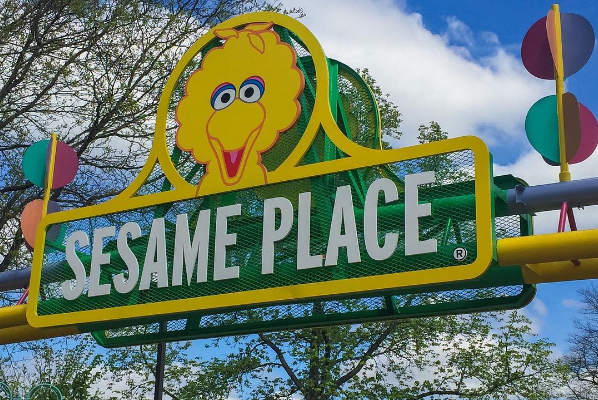
July 28, 2022
 Sesame Place/Facebook
Sesame Place/Facebook
A Black father from Maryland has filed a racial discrimination lawsuit against Sesame Place. He claims costumed performers at the Bucks County theme park ignored his daughter during a meet-and-greet session while interacting with white children.
A lawsuit filed Wednesday against Sesame Place alleges the Bucks County theme park engages in "pervasive and appalling" racial discrimination against Black children.
The suit comes in the wake of a viral video that shows the mascot Rosita denying two Black girls' requests for high-fives earlier this month. The incident prompted a series of apologies from Sesame Place and a pledge to institute mandatory training designed ensure the park provides an inclusive experience.
The lawsuit was filed in the U.S. District Court in Philadelphia on behalf of a Baltimore, Maryland man who said his family had a similar experience, the Bucks County Courier Times reported. The family of Jodi Brown, who posted the viral video of the girls being snubbed, is not involved with the suit.
The Baltimore man, Quinton Burns, says he brought his 5-year-old daughter to the park for a meet-and-greet session with the characters Elmo, Ernie and Telly Monster over Father's Day weekend. He claims the characters refused to interact with his daughter and also ignored other Black people while performing for white guests. The man's attorney's are seeking to make the suit a class-action lawsuit.
The lawsuit seeks $25 million in damages and an order requiring SeaWorld Parks & Entertainment, the theme park's parent company, to implement cultural sensitivity training, NBC10 reported.
"Racism is horrible when it's perpetrated against adults, but it's in a separate category altogether of horror when it's perpetrated against kids who can't fight back and have to understand how ugly it is and how it must be eliminated from every aspect of American life," William Murphy, an attorney for the Burns family, said at a press conference Wednesday.
The attorneys representing Burns are from the civil rights law firm that represented the family of Freddie Gray, the Baltimore man who died of injuries he suffered while in police custody in 2015, prompting racial justice demonstrations throughout the country.
Burns said he decided to to file the suit after he saw the viral Instagram video posted by Jodi Brown. The video shows a pair of 6-year-old girls walking up to the Rosita mascot, which waves them away. Brown said the character then hugged a white girl who had been standing next to the family, but the interaction is not shown in the video.
Sesame Place released a statement saying it would "review the lawsuit filed on behalf of Mr. Burns."
"We look forward to addressing that claim through the established legal process," its statement continued. "We are committed to deliver an inclusive, equitable and entertaining experience for all our guests."
If a federal judge certifies the lawsuit as a class action, other Sesame Place guests who experienced similar "disparate treatment" could join, according to the suit's qualifications.
B'Ivory LaMarr, the attorney representing the Brown family, told NBC10 that more than 150 families have reached out to his office with stories similar to the mistreatment the girls in the video received.
The Brown family has sought to avoid a lawsuit, but would like Sesame Place to cover any mental health-related expenses for the girls, who LaMarr said are suffering from severe emotional distress. The family also has asked Sesame Place to fire the person who was wearing the Rosita costume.
Last week, the park said the employee was "devastated about the misunderstanding," but has not provided an update on the employee's job status.
Initially, the park said the mascot's gestures in the video were intended for someone else, off-screen, who had requested a picture of Rosita holding a child. The park's mascots aren't permitted to hold children. Sesame Place said the employee did not intentionally ignore the girls, claiming its costumes make it difficult to see people at lower levels.
Several days later, Sesame Place released a more extensive apology in response to demands from LaMarr.
"What the two young girls experienced, what the family experienced, is unacceptable," the statement said. "It happened in our park, with our team, and we own that. It is our responsibility to make this better for the children and the family and to be better for all families."